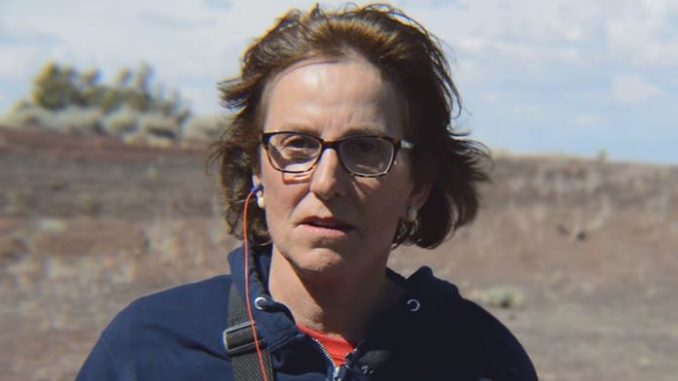
It has become common in American politics for campaign ads to rely on shades of truth when attacking a candidate. The question is just how light can those shades be before the truth of a statement is lost, causing the ad’s message to be defamatory.
Sen. Kelly Townsend is offering her Republican primary opponent a chance to find out if an attack ad against Townsend contains too little in the way of facts, thus deceiving voters in the new Legislative District 7 which covers a large rural area which includes southern Flagstaff, Show Low, Payson, Mammoth, and other areas of eastern Pinal County.
An attorney for Townsend issued a cease and desist letter Thursday which demands Sen. Wendy Rogers and the Rogers’ campaign immediately stop publishing or republishing “all false and defamatory accusations regarding our client’s alleged use of ‘taxpayer dollars’ to fund her campaign.
“Such accusations are inaccurate, defamatory and place our client in a false light in the eyes of her constituents, which is obviously the purpose of those attack pieces,” attorney Arno Naeckel of Davillier Law Group wrote.
At issue is a Rogers’ campaign flyer which states Townsend took nearly $74,000 “in taxpayer dollars to fund her campaign.” One problem with the statement, according to Naeckel, is that Townsend is not utilizing any public monies for this election.
What the Rogers ad apparently refers to one of Townsend’s old campaigns from back in 2012 or 2014 when Townsend took part in Arizona’s Clean Elections program. But the average voter will read the flyer’s statement and insinuations as referring to the current election, the attorney contends.
Naeckel goes on to contend Rogers’ “political antagonism” toward Townsend led the campaign “to conceive of a pre-determined narrative that you wished to convey, which led you to disregard every indicium of the falsity of each and every one” of the alleged defamatory statements printed in the campaign ad.
The cease and desist letter acknowledges that Townsend, as a public figure, will face a higher bar in a defamation lawsuit. She will be required to prove to jurors that Rogers and her campaign released the campaign ad “with malice.”
Such malice would have to be proven by showing the Rogers ad was approved despite knowledge that the comment about Townsend’s use of taxpayer dollars was false or that the ad was created and distributed “with reckless disregard” for whether the statements were true or false.
Townsend’s attorney is also demanding a retraction be posted within three days on Rogers’ website. In addition, the retraction would need to be published in three news outlets selected by Townsend.
The cease and desist letter even includes the language Townsend wants used in the retraction. It would admit that the Rogers’ campaign published materials denigrating Townsend’s character by implying she improperly funded her current campaign with taxpayer dollars.
“Wendy Rogers knew, and has always known, that Senator Townsend is not accepting public campaign funds,” the proposed retraction states.
The proposed retraction wording also has Rogers admit her campaign published the anti-Townsend ad in such a way it suggested “it was somehow nefarious to run under the Clean Elections program” and that such candidates are engaging in political opportunism.
In explaining her decision to retain legal counsel, Townsend noted the misleading ad contains facts which “deceive” voters.
“She has done this to other candidates but I will not tolerate it,” Townsend said Thursday.
This is not the first time Rogers has been threatened with legal action related to a campaign ad. In 2018, she approved an ad which implied that an opponent worked for modeling agency which advertised on websites which also ran ads linked to sex trafficking.
The modeling agency was not named in the Rogers’ campaign ad but it was not difficult to identify through the candidate. The candidate’s employer sued, alleging defamation and false implication that the company was involved in illegal activity.
A split Arizona Supreme Court ruled 4 to 3 that the ad was protected political speech. That decision was highly criticized for shielding deceptive or even incorrect campaign ads.
Rogers had not released a public statement on the retraction demand as of press time.


